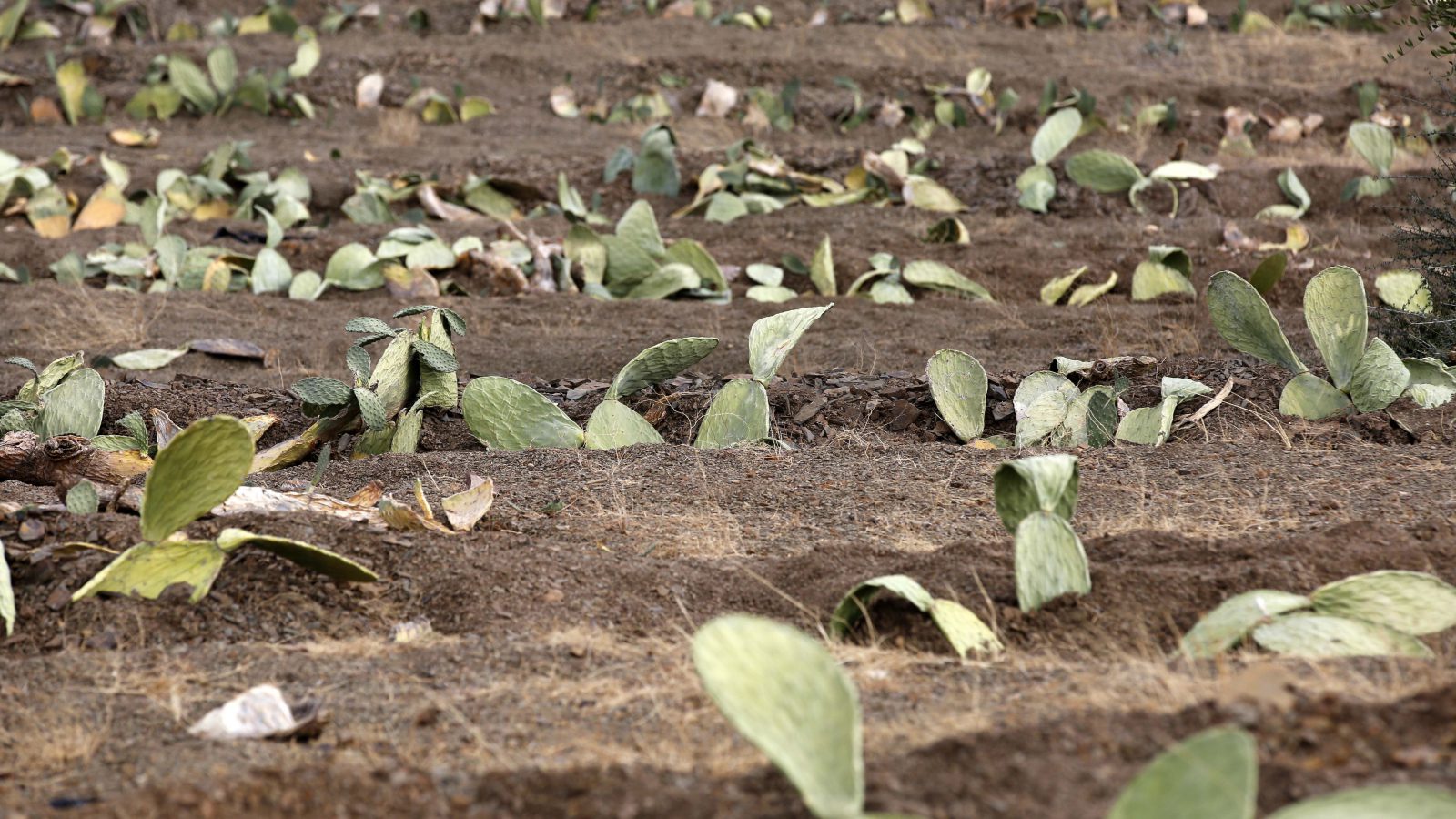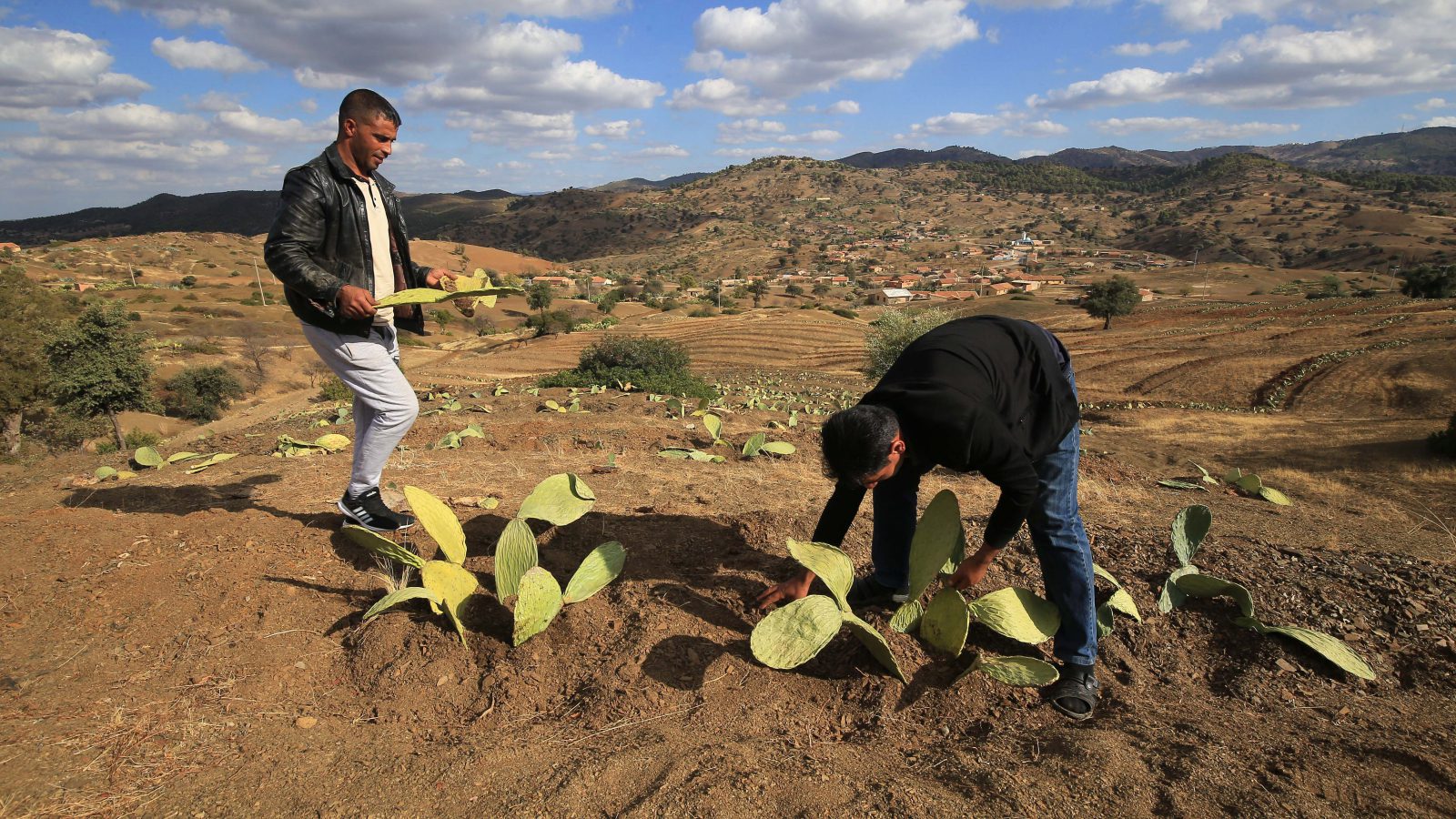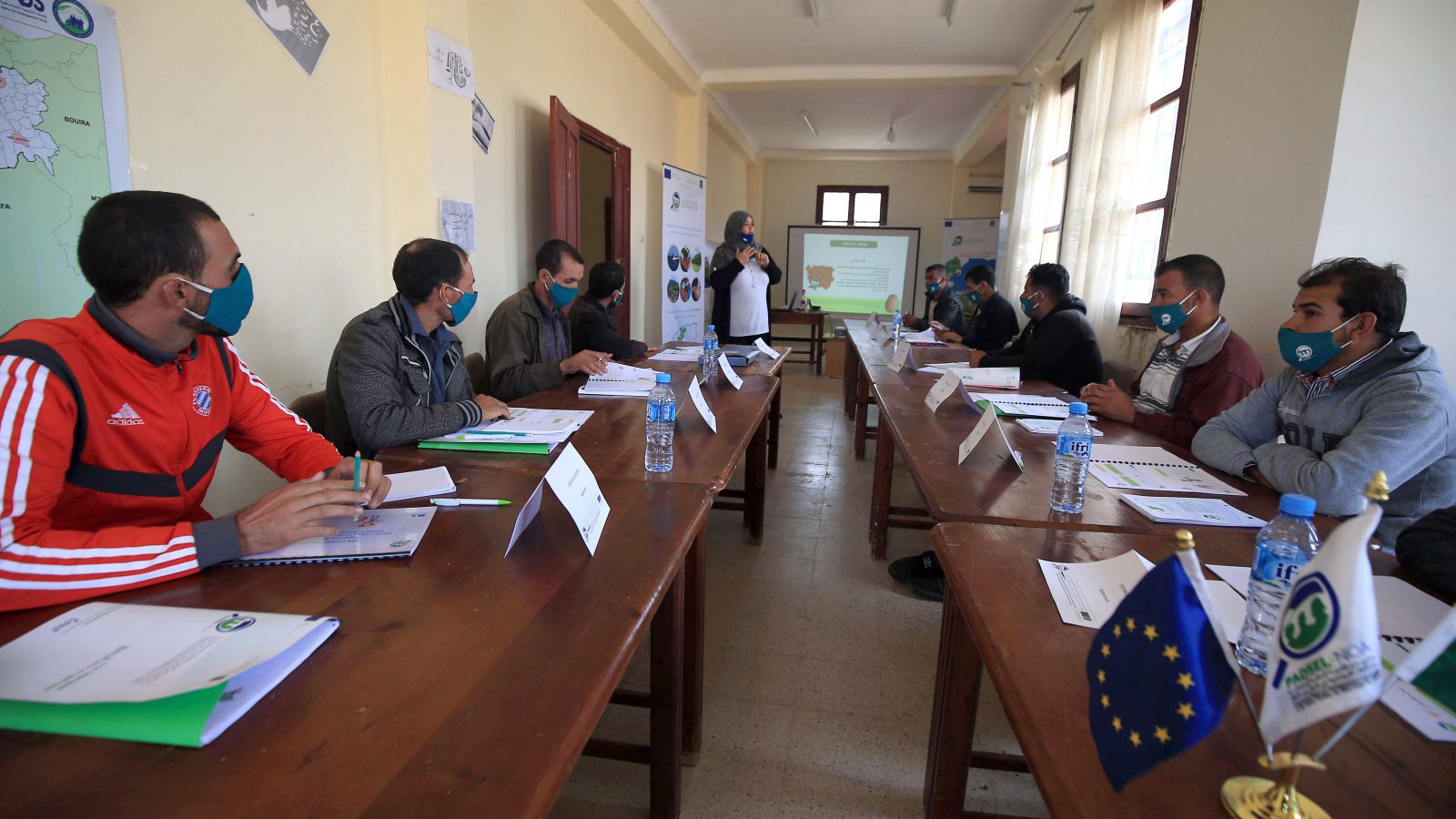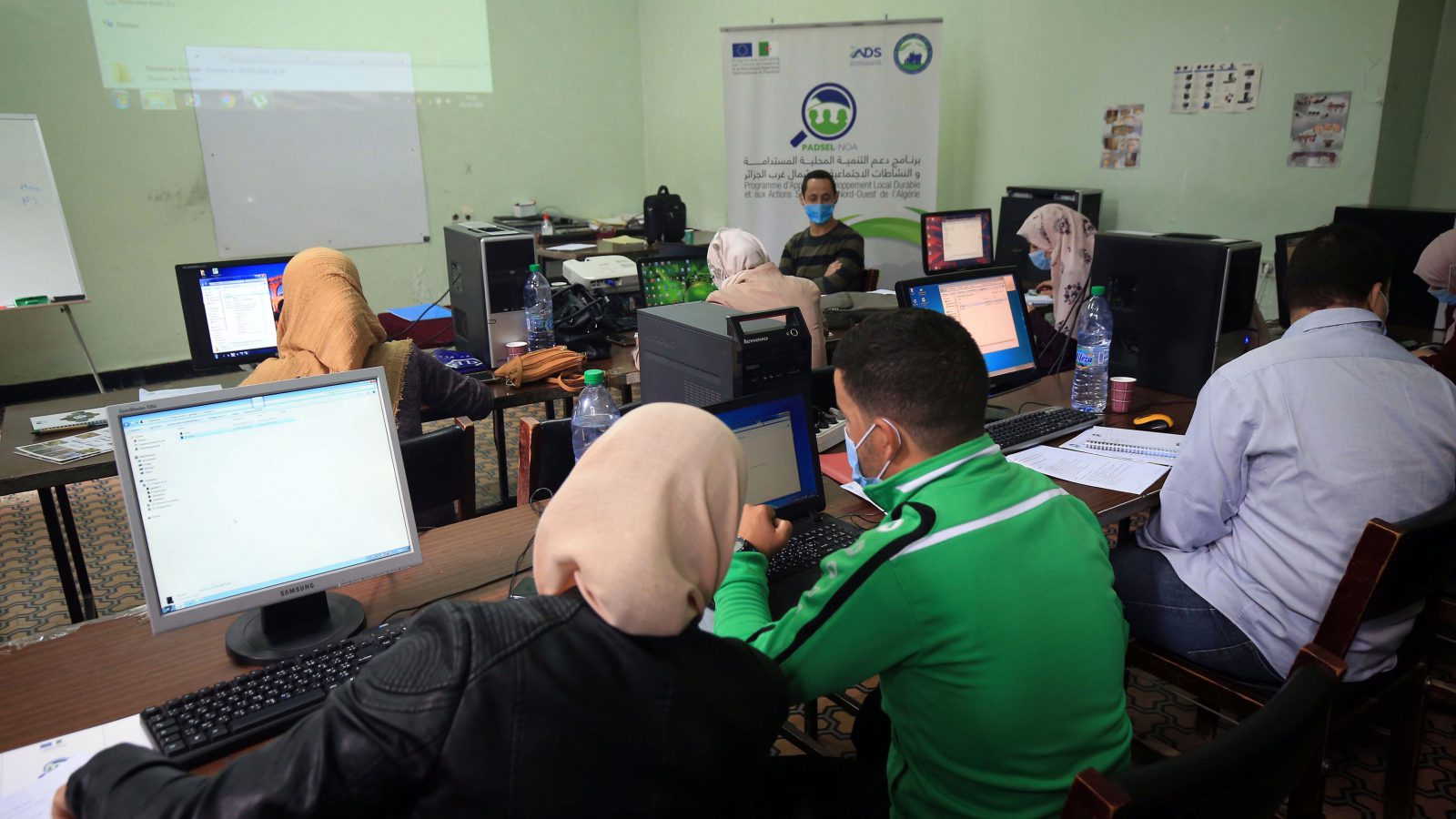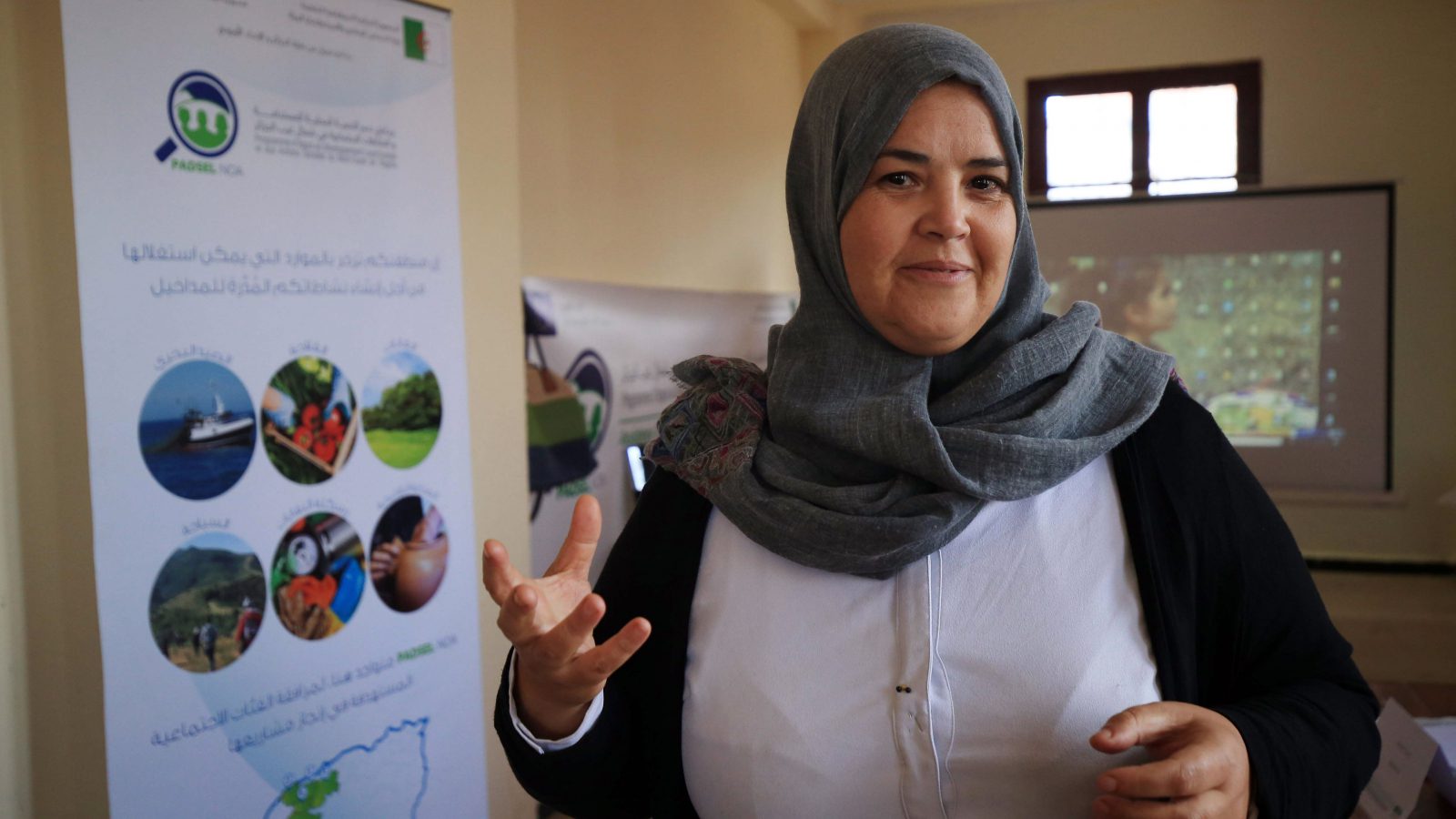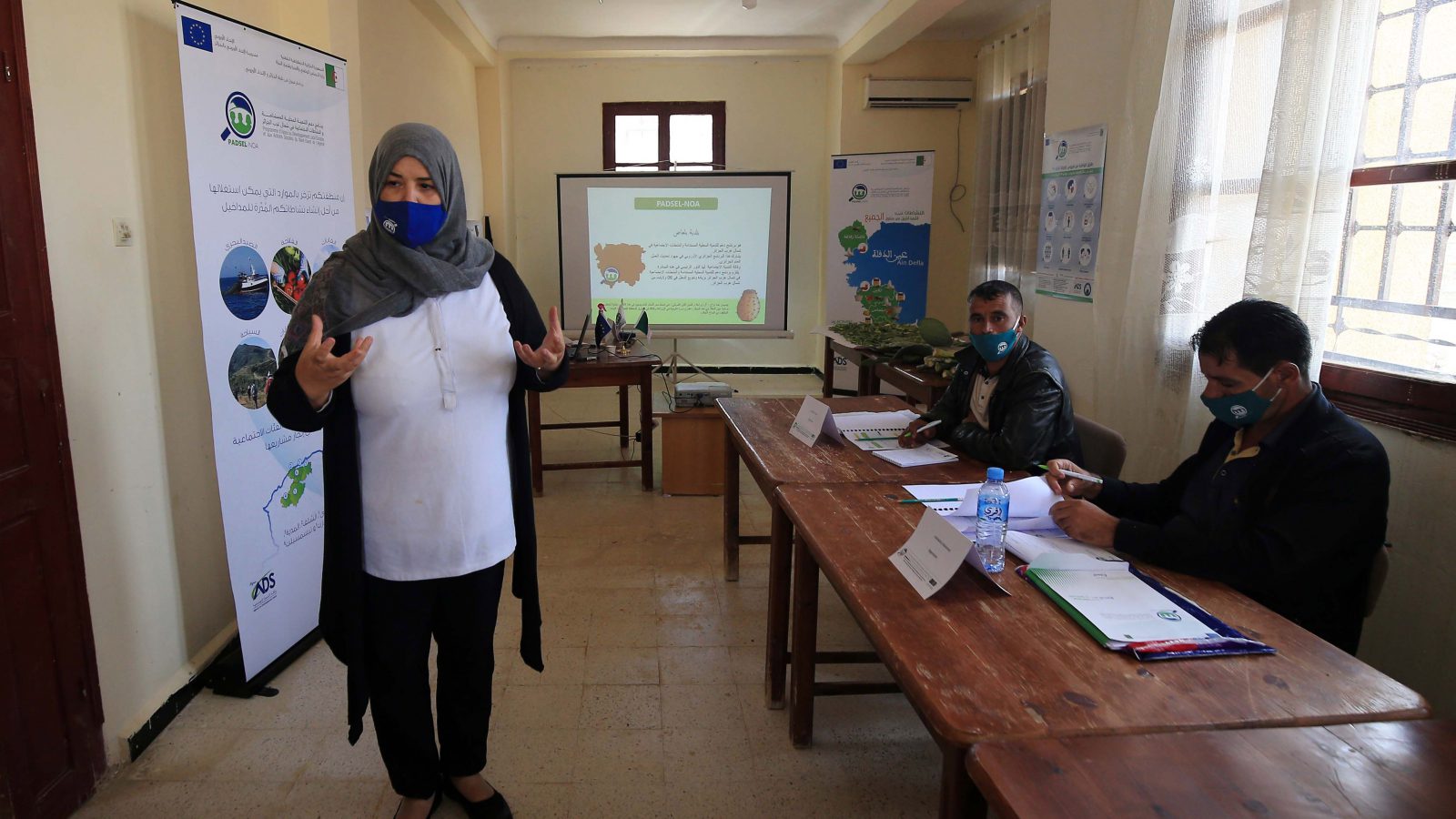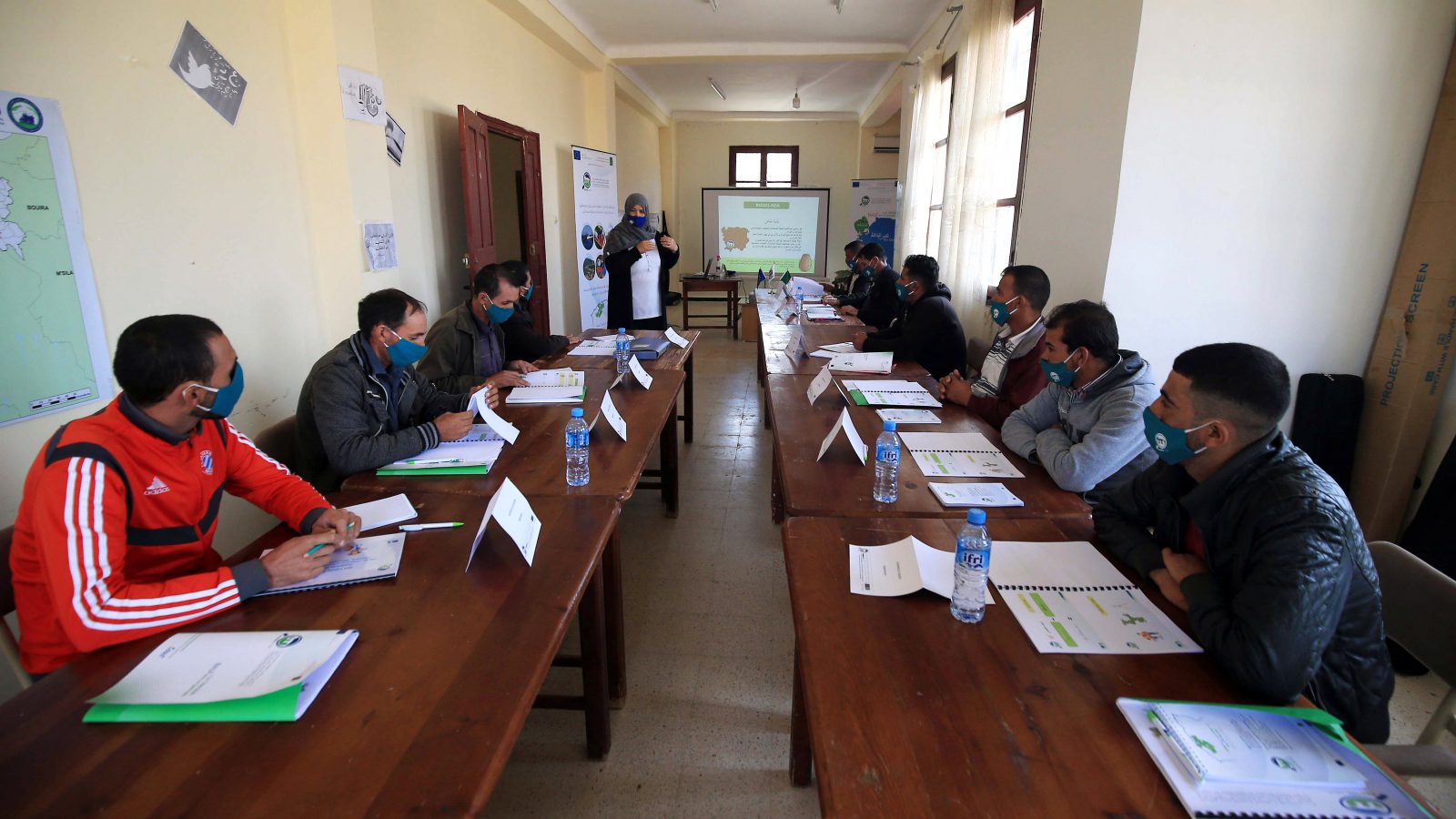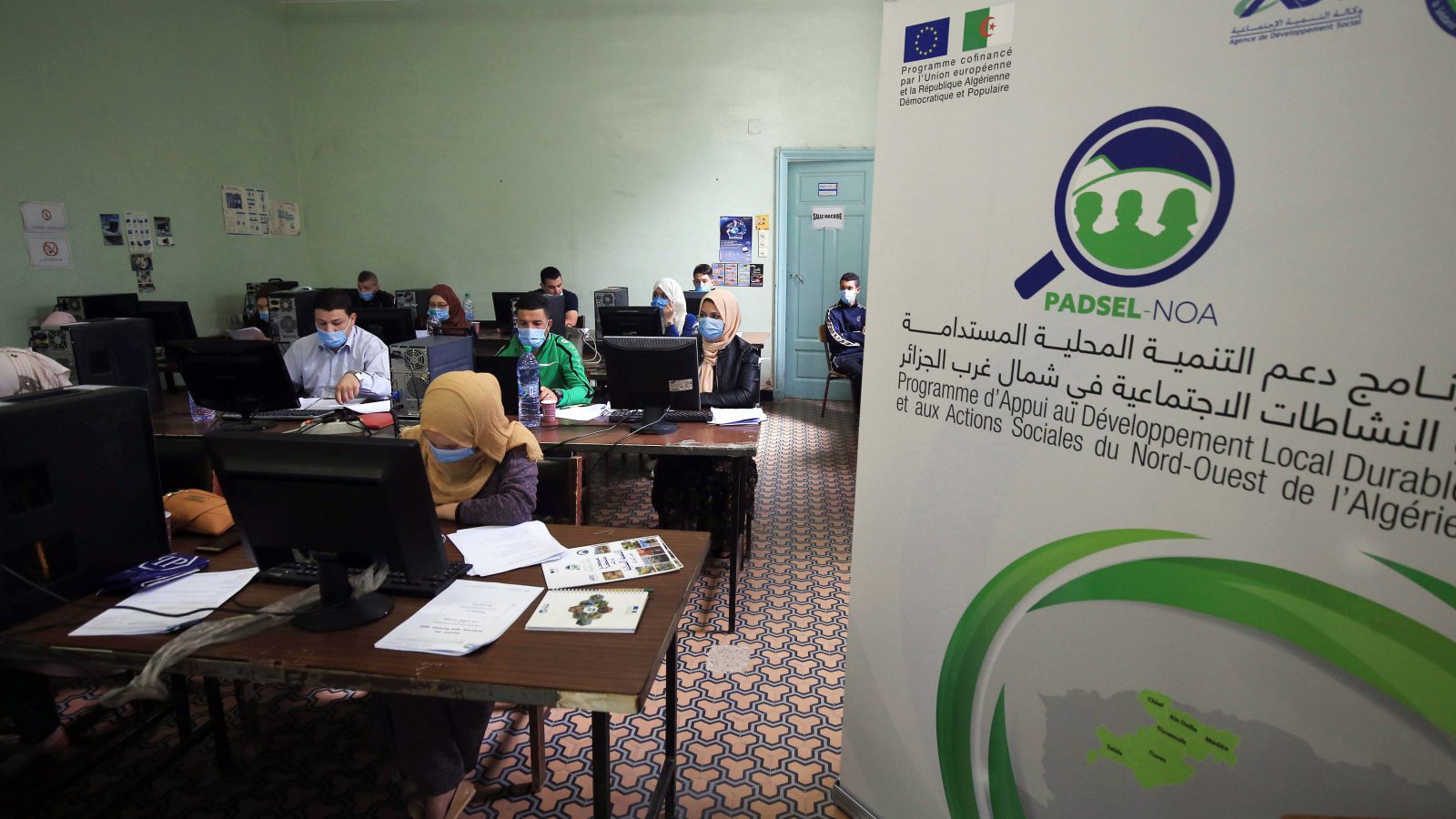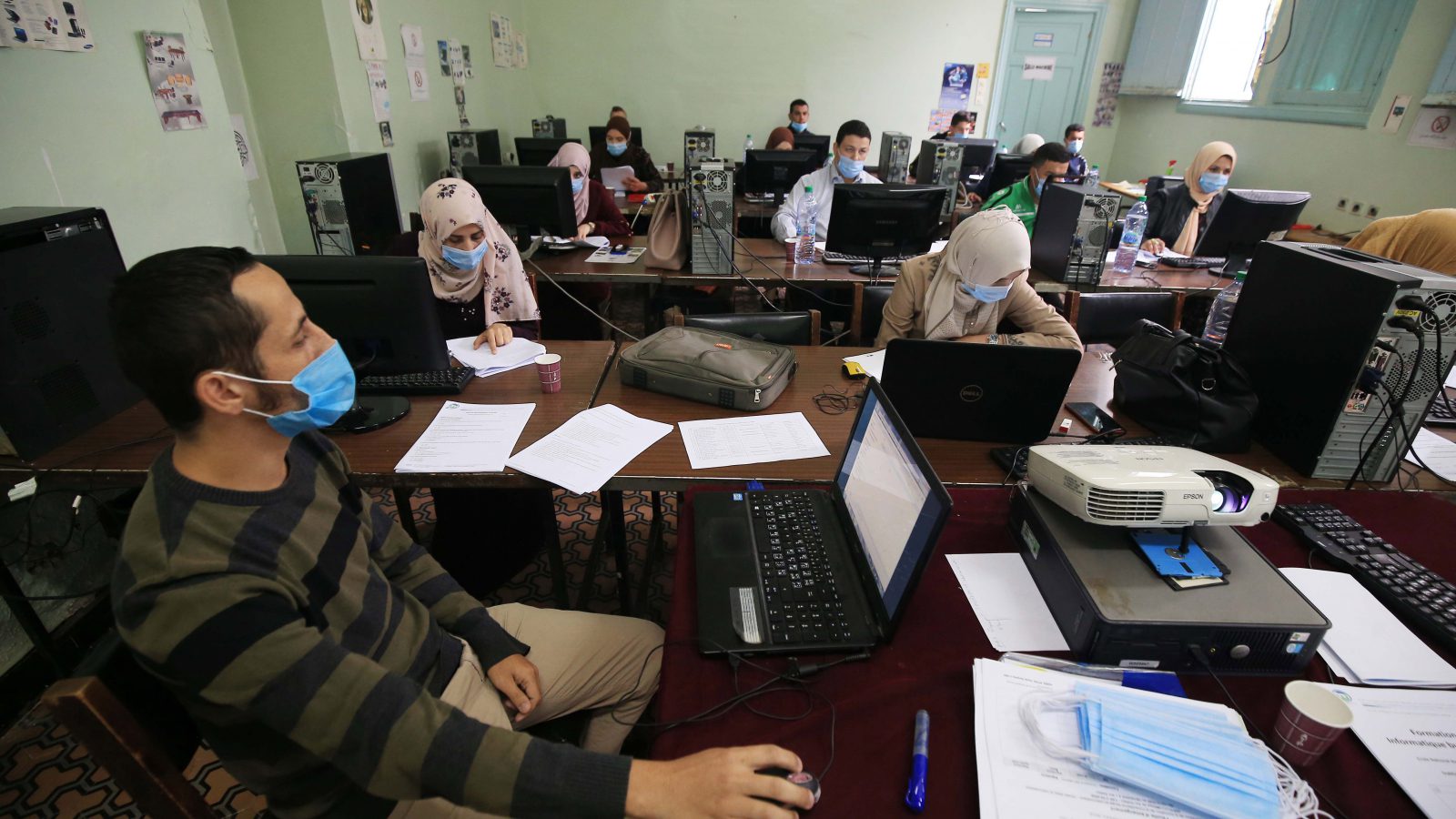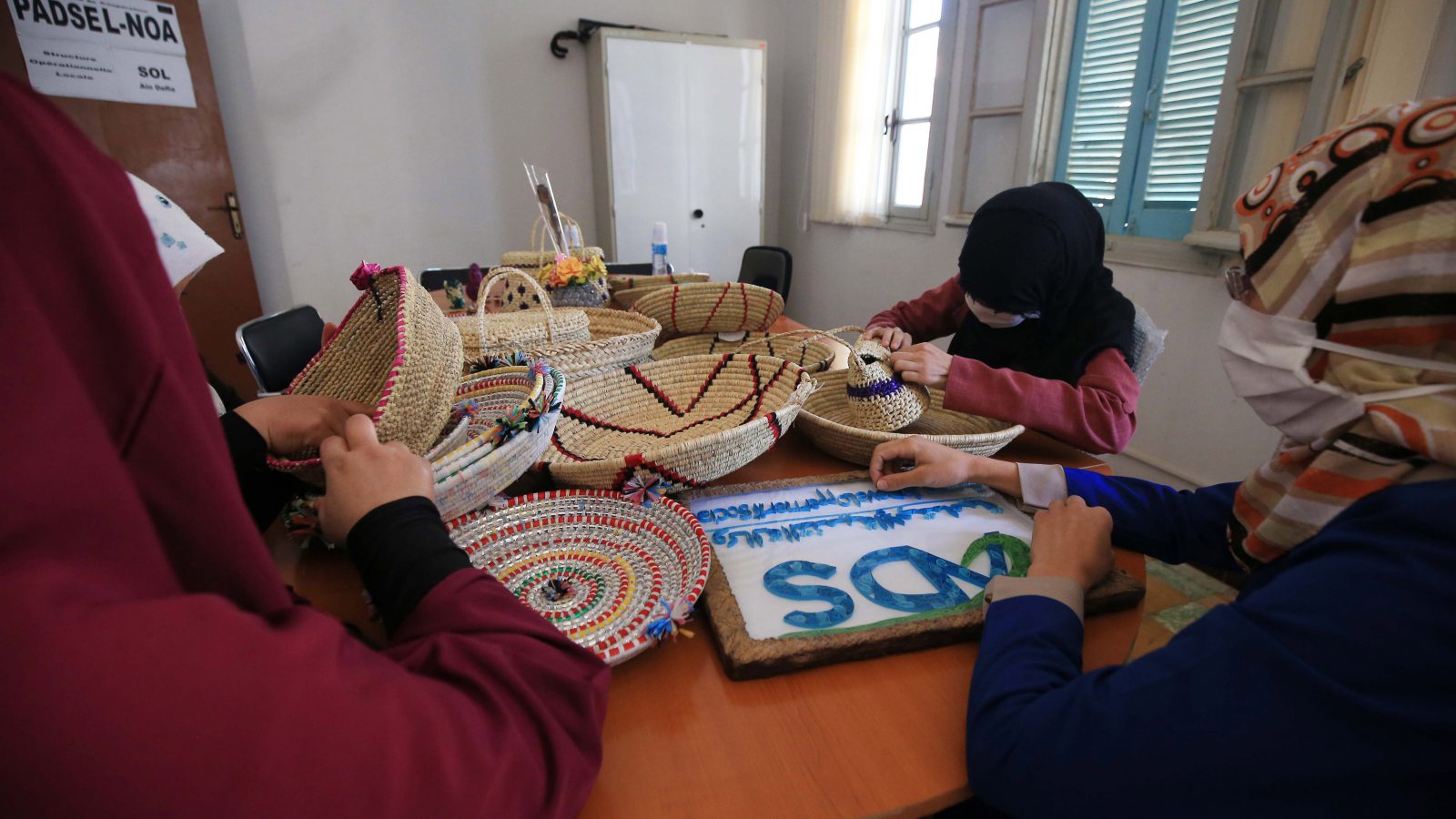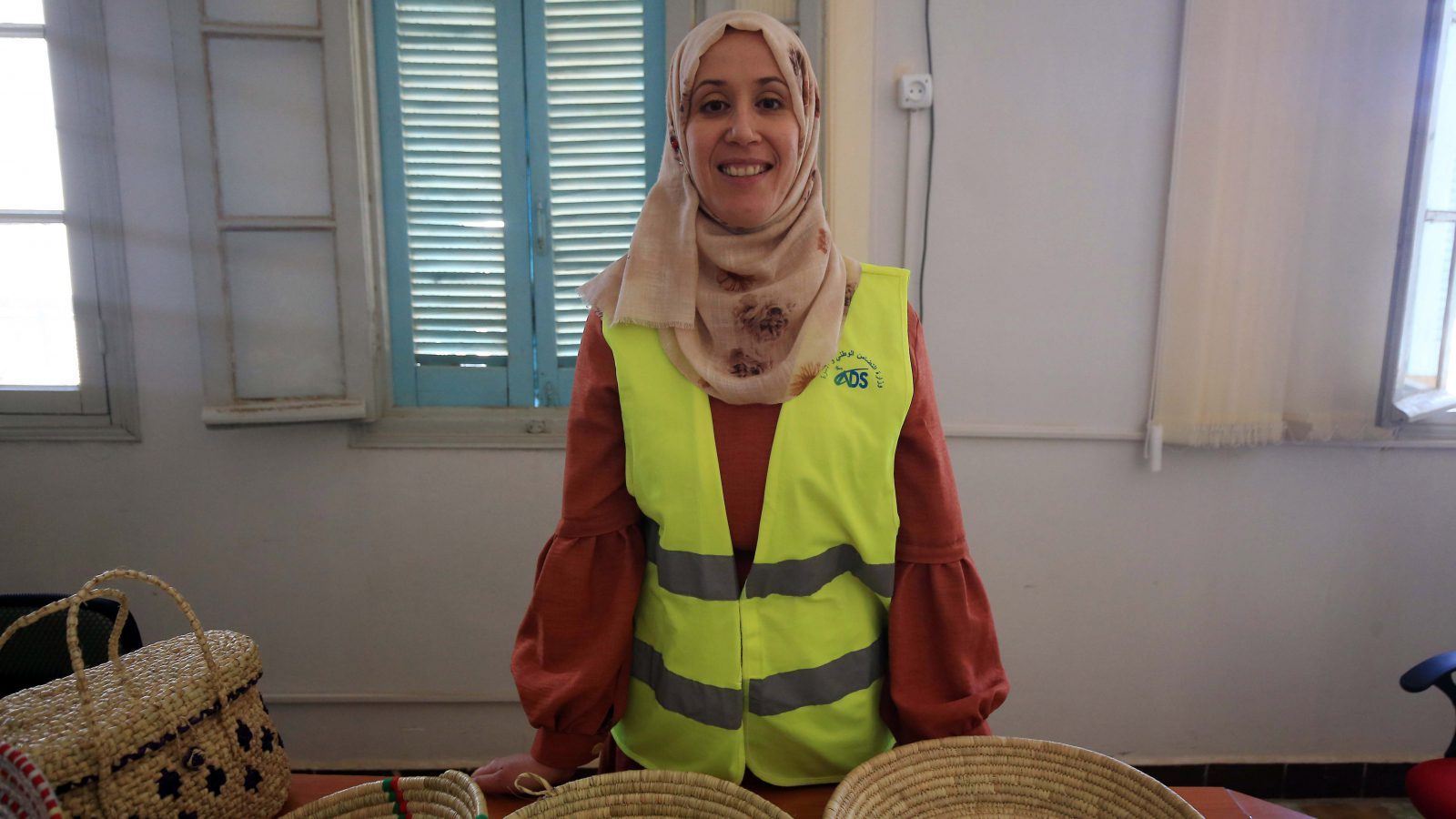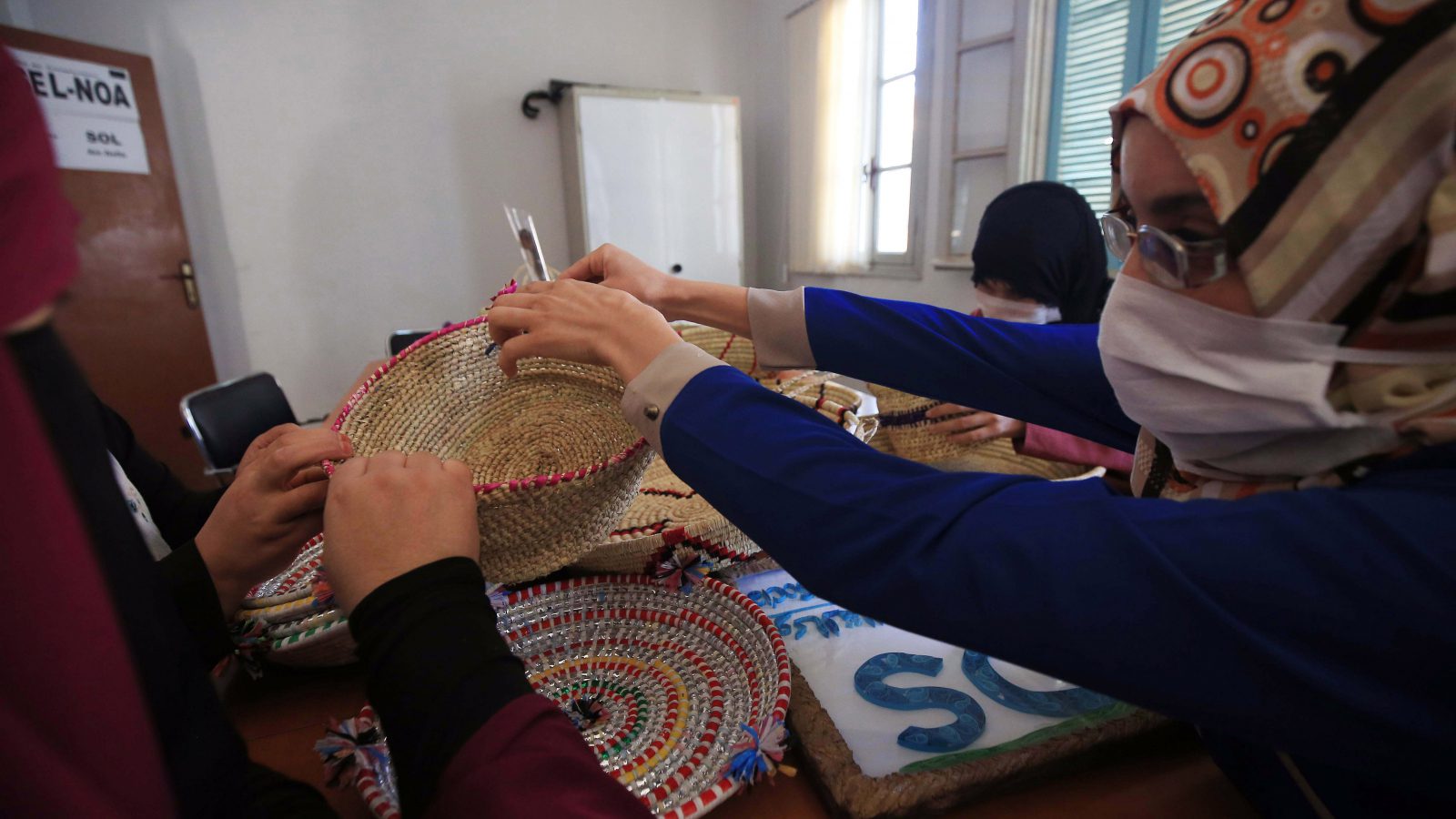PADSEL NOA: From handouts to financial independence for women
Piloted in 6 provinces and 24 target municipalities, the Programme for the support of sustainable local development and social actions in North West Algeria (PADSEL NOA) is helping local public sector stakeholders support populations in their journey to financial independence. Jointly financed by the Algerian government and the European Union, with a total budget of 43 million euros, this programme supports the private sector, households, and organisations in their actions to create and consolidate income-generating activities.
Cacti have always grown on the slopes and hilltops of Kharfia, a small hamlet in the municipality of Belaas (Aïn Defla). In the past, they were mainly used to provide natural privacy to holiday homes and their fruits were eaten by the villagers or sold a the side of the road. But young local farmer Youcef Hadjimi dreams of creating a real cactus plantation. He aspires to create a more efficient farming model, boosting yields and producing fruit and livestock fodder. In early October 2020, along with fifteen other farmers from his municipality, Youcef took a course on how to make a profit from the prickly pear. “I have been surrounded by cacti from a young age, but I had never imagined that these spiny plants could be so valuable. Now, I know how to plant, prune, and sell the fruits, thanks to the knowledge shared by our teacher, Nadira”, explains the young man.
Part of the PADSEL NOA programme, this training session was led by expert Nadira Oulebsir, vice-president of the national cactus development association. The farmer has covered over 700 kilometres, sharing her expertise. “This course from PADSEL NOA has come at the perfect time, with the government aiming to increase the surface area of cactus plantations. To do so, we will need nurseries, plantation companies and companies to process the fruit and seeds. Processing holds great potential, as it is possible to extract oil from the prickly pear, as well as producing juices and jams. The Aïn Defla province could become an industry leader”, asserts Nadira Oulebsir.
Growing prickly pears is one example of the type of Income Generating Activity (IGA) PADSEL NOA aims to develop in rural locations, throughout 24 municipalities in 6 pilot provinces (Chlef, Aïn-Defla, Médéa, Saïda and Tissemssilt). Mahmoud Hafnaoui, Mayor of Belaas, one of the poorest villages in Algeria, with a population of 6000, cannot hide his satisfaction. “There are very few job opportunities here. The economy is essentially based on agriculture and livestock farming. PADSEL NOA is a glimmer of hope for the municipality, because it is based on a realistic picture of the human, physical, and environmental potential of each region. It works for prickly pear farming, but it could just as easily be applied to mastic oil extraction, or developing the tourism industry, as Belaas is close to the Ouarsenis mountain range”, explains the politician.
Making craftswomen independent
From Belaas, we head to the mountain village of El Maine. The Mayor, Abdelkader Habbes is also very happy with the contribution of the PADSEL NOA programme, especially since the main beneficiaries are local women. In Belaas, handicrafts are one of the main income generating activities and around fifteen women have received training in basket weaving, using fibres made from the chamaerops, commonly known as the European fan palm. “In our region, women are skilled in the arts of basketry, pottery and weaving. But they usually only make utensils to use in their own homes. Our most important job is to make them understand that their expertise is sought-after and can generate a substantial profit”, stresses the Mayor of El Maine. He adds that it was difficult in the beginning, as few women took up the offer to participate in the course. “Generally, rural women only leave their homes to go to the fields. But the first craftswomen who joined the programme played an important role, as their participation encouraged others to take the course too”, he adds.
Based in the premises of the Social Development Agency (ADS) outreach unit, the craftswomen are now proud to showcase their products. Having taken the course in the month of August, Rokia, Aïcha, Kheira and Naïma have already produced plates, baskets and small items of costume jewellery using fan palm. Hassiba Bouziani, a sociologist working at the ADS outreach unit, explains that the next step involves helping the craftswomen organise, in order to produce and, crucially, sell, their products. “Currently, we are looking into the possibility of supporting them in establishing an association of artisans. The aim is to help them become independent and make a living from this traditional art form”, she says.
Supporting project leaders
Local institutions play a key role in helping the local population achieve financial independence. To do so, institutional stakeholders must use development tools appropriate to the local situation. The administration division of PADSEL NOA trains and bolsters the skills of civil servants. It has also established cross-sectoral collaboration, with several ministerial departments and public bodies working in cooperation with the Ministry of Solidarity. This cross-sectoral coordination necessitates the creation of a platform connecting all stakeholders involved. PADSEL NOA responded to this need with the Geographic Information System. This system makes it possible to collate, process, and share information, so it can be used for effective decision making. In Aïn Defla, a graduate integration programme (PID) has trained 20 university leavers in IT and administrative skills. These young graduates are the coaches and facilitators of the future. Their training is overseen by Omar Beskri, an assistant at the local PADSEL NOA operational structure in Aïn-Defla. “The coaches and facilitators are on the frontline in local development terms. Their aim is to support project leaders and make sure their voices are heard by the administrative bodies”, notes Omar Beskri.
A “revolutionary” programme
The implementation of the PADSEL NOA programme, co-financed by the European Union, which has contributed 20 million euros, required a long preparatory phase. A series of studies was carried out to pinpoint activities and beneficiaries throughout the 24 target municipalities. Saïd Benmerad, a local development expert and head of the technical support team, highlights the “revolutionary” nature of the programme. “We are attempting to create connections between all stakeholders, to support sustainable, inclusive, and participatory local development. Our aim is to draw on the uniqueness of each area. By doing so, we help politicians, civil servants, and our beneficiaries to promote their regions. That’s what makes PADSEL NOA a revolutionary programme”, asserts Saïd Benmerad. He believes that the national government stands to gain most from the dynamic created. “The public authorities, which, up to this point, have been contributing financially, will see this investment generate wealth, new jobs, and a clear improvement in quality of life among the target populations”, he adds.
Replicating the success
At this stage, the outcomes of PADSEL NOA are very encouraging, despite the challenges faced. Réda Allal, head of the Local Support Team and expert in the development of micro, small, and medium enterprises and income generating activities, believes that all the stakeholders involved in the programme have risen to the challenge. “To date, despite a slight delay beyond our control, we have managed to provide training in income generating activities to over 500 people, 40% of them female. We also work to support the project leaders and coaches, so that the initiatives we have launched can grow and spread”, he explains. According to this expert, PADSEL NOA should be extended by one year in order to fulfil all of its targets.
Dr Samir Boukhalfa, operations directors of the PADSEL NOA programme, shares this opinion, “We have already achieved great things. One more year would allow us to make up for time lost due to restrictions during the pandemic and fully achieve our goals”. He maintains that the programme has created a strong working relationship between stakeholders in the 6 provinces. “Today, we are seeing greater awareness among institutional stakeholders and beneficiaries, as practical action is what counts. Representatives of the public sector have also realised that it is possible for communities to become financially independent if we combine our efforts”. In the medium term, the experience and lessons of this phase of PADSEL NOA should be replicated in other provinces, so its success has a lasting impact.
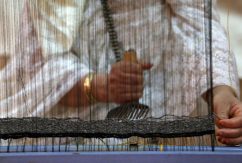
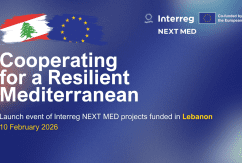
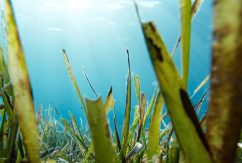
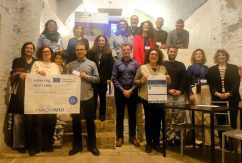

























 Syria
Syria 
